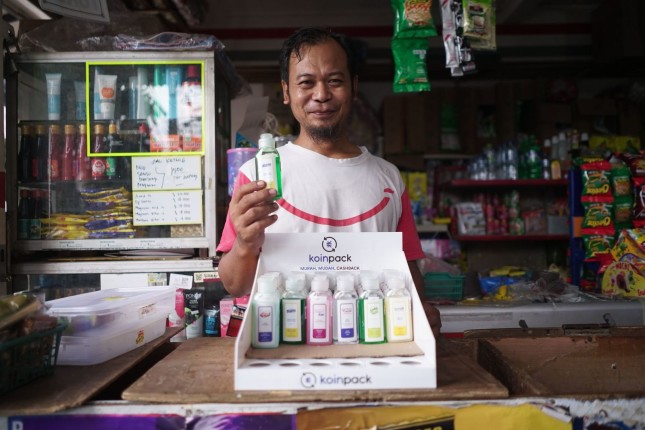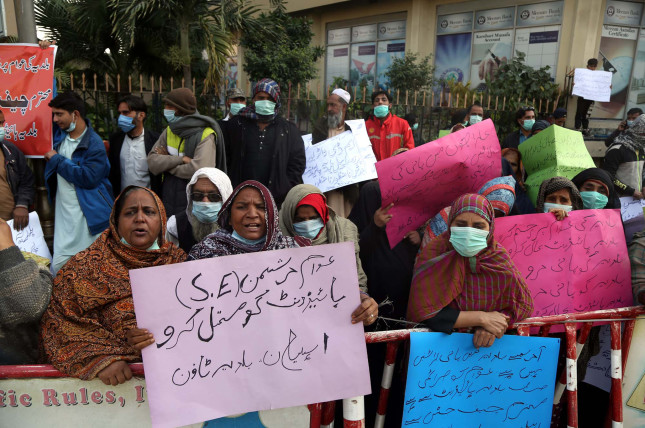-
A Conversation with Marisa O. Ensor on Securitizing Youth and Youth’s Role in Peace and Security Agendas
› “I’ve been quite impressed by the wide diversity and complexity of young women’s and men’s engagement for peacebuilding and development often while confronting seemingly insurmountable challenges,” says Marisa O. Ensor, Adjunct Professor in the Justice and Peace Studies Program at Georgetown University, in this week’s Friday Podcast.
“I’ve been quite impressed by the wide diversity and complexity of young women’s and men’s engagement for peacebuilding and development often while confronting seemingly insurmountable challenges,” says Marisa O. Ensor, Adjunct Professor in the Justice and Peace Studies Program at Georgetown University, in this week’s Friday Podcast. -
Building Local Capacity for Zero-Waste in the Philippines: Q&A with Break Free From Plastic’s Former Asia-Pacific Coordinator Beau Baconguis
›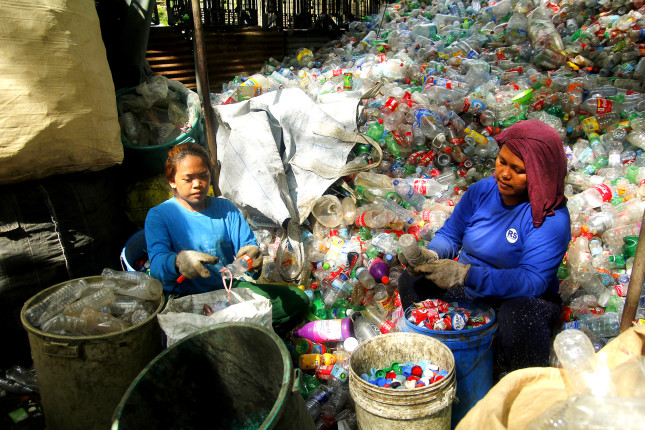
Large pollution can come in small packages. This is the case with the small plastic pouches, called sachets, that constitute a major source of the plastic waste crisis plaguing the Philippines, a country ranked third in the world for ocean plastic leakage. Filipino consumers throw away a staggering 163 million of these difficult-to-recycle plastic packets each day, which adds up to about 60 billion a year, enough to carpet 130,000 soccer fields.
-
COVID-19’s Pregnancy Paradox: Greater Disease Risk but Lower Vaccine Priority
›
“Greater attention to pregnant patients as a unique population at higher risk of SARS-CoV-2 infection sequelae, is critical to preventing maternal and neonatal morbidity and mortality,” write the authors of a study in the American Journal of Obstetrics and Gynecology examining morbidity and mortality among pregnant women with COVID-19 in Washington state. The study found “markedly higher” hospitalization and fatality rates among this group compared with similarly-aged non-pregnant individuals.
-
The Top 5 of February 2021
›
Collapsing ice shelves raised concerns in 2020, but the immediate effects of climate change in the polar regions are merely the tip of the iceberg, write Olivia Popp and Michaela Stith in this month’s top post. What happens in the polar regions doesn’t always stay in the polar regions—it has profound effects on climate and communities around the world.
-
Reviving Culture Through First Nations Midwifery
› “It’s more than just clinical care. It’s cultural. It’s connection to country. It’s connection to land. It’s all of those things that are important to the woman and family, kinship, babies,” says Mel Briggs, a First Nations midwife in Australia, speaking about the importance of Aboriginal midwifery in this week’s Friday Podcast. Like her great-grandmother, Briggs followed the call to midwifery and finds joy in helping women and families “create really healthy, chunky, fat babies.”
“It’s more than just clinical care. It’s cultural. It’s connection to country. It’s connection to land. It’s all of those things that are important to the woman and family, kinship, babies,” says Mel Briggs, a First Nations midwife in Australia, speaking about the importance of Aboriginal midwifery in this week’s Friday Podcast. Like her great-grandmother, Briggs followed the call to midwifery and finds joy in helping women and families “create really healthy, chunky, fat babies.” -
The Circular Business Models Behind Indonesia’s Reuse Revolution
›China Environment Forum // Guest Contributor // March 4, 2021 // By Dieuwertje Nelissen & Tauhid PandjiWaste banks are a cornerstone of Indonesia’s waste reduction efforts. Seeking to prevent plastic waste from getting burned or choking waterways, communities establish these places for people to bring plastic waste to be recycled. It only took a few months to see tangible results at the Bumi Daya Bersih waste bank in West Jakarta. In addition to collecting and sorting waste, the waste bank community is also contributing to waste prevention. A number of regular waste bank customers have started bringing empty plastic packaging that’s not intended to be recycled (yet) but instead refilled with high-quality home and body care products. -
Turning Applause into Action: Investing in Women Leaders in Nursing and Midwifery
›
“Midwives and nurses contribute to the health of women, families, communities, and society at large, but the impact of their care goes much further… Their care is transformational,” said Diene Keita, Deputy Executive Director for Programmes at UNFPA. She spoke at a recent event hosted by Women in Global Health, which virtually convened nurses and midwives from around the world to celebrate 100 outstanding women nurse and midwife leaders from over 50 countries. The event occurred in honor of the Year of the Nurse and the Midwife, as designated by the World Health Organization (WHO). The list of 100 leaders is the first global recognition of its kind and commemorates women’s unique stories of resilience, leadership, and hard work.
-
Why Water Conflict is Rising, Especially on the Local Level
›
That future wars will be fought over water, rather than oil, has become something of a truism, particularly with regard to the Middle East. It’s also one that most water experts have refuted time and time and time again. But while this preference for cooperation over conflict may (and emphasis on may) remain true of interstate disputes, this blanket aversion to the ‘water wars’ narrative fails to account for the rash of other water-related hostilities that are erupting across many of the world’s drylands. As neither full-on warfare nor issues that necessarily resonate beyond specific, sometimes isolated areas, these ‘grey zone’ clashes don’t seem to be fully registering in the broader discussion of water conflicts. In failing to adequately account for the volume of localized violence, the world is probably chronically underestimating the extent to which water insecurity is already contributing to conflict.
 A Publication of the Stimson Center.
A Publication of the Stimson Center.

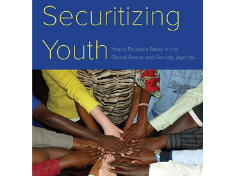 “I’ve been quite impressed by the wide diversity and complexity of young women’s and men’s engagement for peacebuilding and development often while confronting seemingly insurmountable challenges,” says Marisa O. Ensor, Adjunct Professor in the Justice and Peace Studies Program at Georgetown University, in this week’s Friday Podcast.
“I’ve been quite impressed by the wide diversity and complexity of young women’s and men’s engagement for peacebuilding and development often while confronting seemingly insurmountable challenges,” says Marisa O. Ensor, Adjunct Professor in the Justice and Peace Studies Program at Georgetown University, in this week’s Friday Podcast.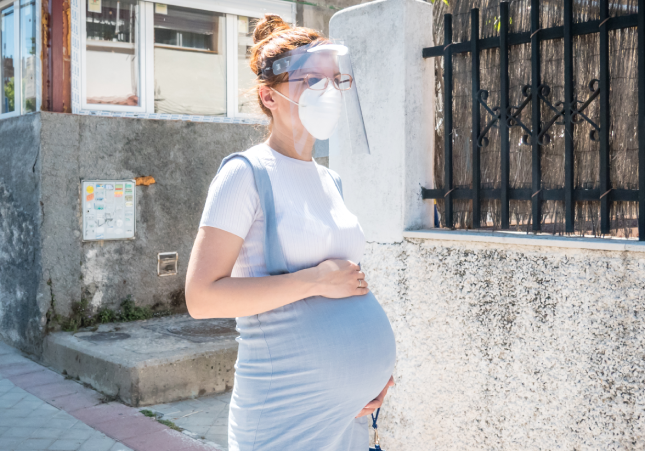
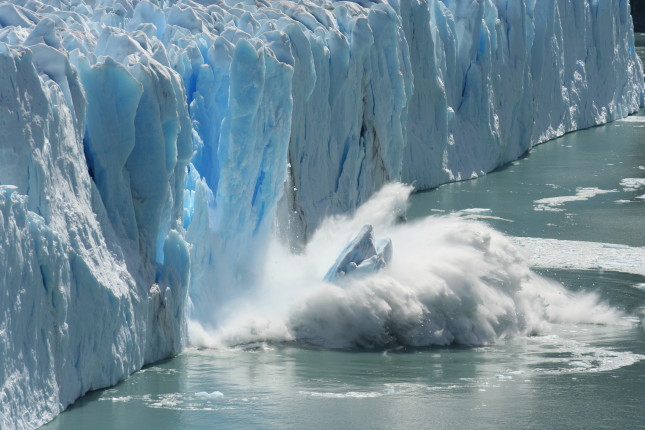
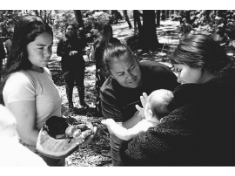 “It’s more than just clinical care. It’s cultural. It’s connection to country. It’s connection to land. It’s all of those things that are important to the woman and family, kinship, babies,” says Mel Briggs, a First Nations midwife in Australia, speaking about
“It’s more than just clinical care. It’s cultural. It’s connection to country. It’s connection to land. It’s all of those things that are important to the woman and family, kinship, babies,” says Mel Briggs, a First Nations midwife in Australia, speaking about 